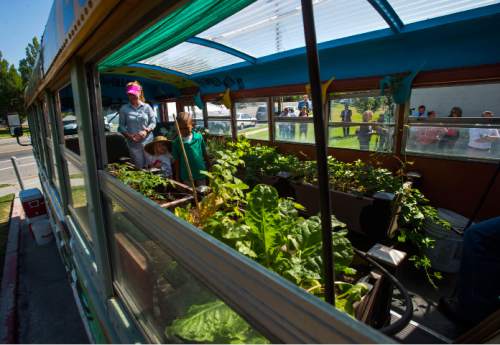This is an archived article that was published on sltrib.com in 2016, and information in the article may be outdated. It is provided only for personal research purposes and may not be reprinted.
Good on Salt Lake City for hooking up with a couple of non-profits that will bring its school bus full of greens to the "food deserts" on the city's west side. The Urban Greens Market is an honorable start.
It won't, however, be enough to meet the need for fresh, healthy food in the Glendale and Poplar Grove areas. For that, residents need another grocery store or two.
Salt Lake City this week announced a partnership with Green Urban Lunch Box and Real Food Rising. Their bus full of vegetables and fruit will have regular stops once or twice a week at five different locations. Beyond bringing the greens, the project also involves hiring teens to grow and sell the produce, giving them job and life skills.
And that couples well with a separate effort to encourage more residents to grow their own food. The Sorensen Unity Center has plots available to residents, and it has information and support for those who want to have vegetable gardens in their own yards. That helps address one of the neighborhoods' biggest barriers to better nutrition: affordability.
But it won't help much in February.
The federal government defines a "food desert" as a low-income U.S. Census tract where at least a third of residents are more than a mile from a full grocery store (for urban areas). Glendale and Poplar Grove are among more than 6,500 food deserts in the continental United States. Compounding the problem is the relatively low availability of public transportation in an area with fewer car owners.
The real solution is for the city to come up with the right incentives to bring full-service grocery stores. History has shown it will take more than market forces to make that happen. Last year, a national study by the Associated Press found Utah opened nine new supermarkets over a four-year period, but none was in Utah's 50 urban and rural food deserts.
The city has to come up with the money to offer tax breaks, but there is justification. Grocery stores not only help keep people properly nourished, they also raise property values. That will recover the investment.
The American diet, especially in low-income areas, faces challenges that go beyond access to good food. But without that access, the chances for improvement are the same as finding a head of lettuce in the desert.



